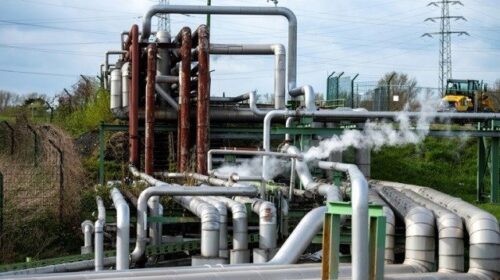Pakistan may be staring at a severe availability of natural gas crisis this winter. Last week Pakistan government’s Petroleum Division informed a National Assembly panel that there was no option “but natural gas rationing in the coming winter in view of the increasing shortage every year”, according to a report in leading Pak English daily Dawn.
Pak government officials have warned that there would be “no gas supply to household consumers for 16 hours,” adding that natural gas was scarce in Pakistan and the coming winter was quite difficult in terms of gas availability and hence could be provided only “three times a day” to domestic consumers for cooking. Consequently, Pakistan is desperately looking for options to import extra liquefied natural gas (LNG) supplies. But it will not be an easy task considering Pakistan is facing a consistent fall in its foreign exchange reserves amid continuing political instability and unavailability of natural gas cargoes in the international energy market as a fallout of the ongoing Russia-Ukraine war, according to The News International, another Pak daily.
According to the Trade Development Authority of Pakistan, 56 per cent of Pakistan’s refined petroleum products are imported from United Arab Emirates, while 34 per cent from Saudi Arabia. With the increase in worldwide demand of the energy products, following the Ukraine war, key gas suppliers like Saudi Arabia and Qatar, are increasing their supply to Europe, irrespective of growing demands of the developing countries. This development has caused deep consternation in Pakistan. As a desperate measure to address the gas crisis, Pakistan has even spoken to Russia about an “energy deal,” that may take years to execute.
Pakistan has less than a 1 per cent share in world gas consumption. Natural gas and imported LNG contribute more than 40 per cent to the country’s current energy mix, including gas resources used in electricity generation. In recent years, the demand for gas has increased rapidly in Pakistan, according to a report by Pakistan Institute of Development Economics.
Domestic political instability in Pakistan has also exacerbated the gas crisis in the country. The current government recently held former planning minister Asad Umar responsible for the last year’s gas crisis in Pakistan, saying the latter had recommended not importing the commodity, and “emphasized that there would be no gas shortage this winter.” The Pakistan petroleum ministry officials have also claimed that the previous Imran Khan’s government had opposed the gas import and failed to contract cheapest available liquefied natural gas (LNG) at the time, which impacted the domestic gas production in Pakistan.
According to Pak media reports, State-run gas utilities in Pakistan, Sui Northern Gas Pipelines Limited (SNGPL) and Sui Southern Gas Company (SSGC), have sought a massive increase in gas prices. The gas companies have filed a petition with Pakistan’s Oil and Gas Regulatory Authority (OGRA), seeking a massive increase in gas prices. SNGPL has asked OGRA to increase the prescribed price by 237 per cent, while SSGC has sought an upward revision by 96.36 per cent. This suggests that the gas demand in Pakistan has already started rising and the shortfall is likely to soar to its highest level in the coming months, according Pak media reports. More worryingly, SSGCL has recently sent gas ‘closure notices’ for over three months in winters to local industries, which the latter rejected saying that gas outages would lead to “massive layoffs and closure of businesses”, according to a report in The News International.
State-owned energy companies have been trying to purchase LNG cargoes for the last one year. But there has not been a success so far, which is unusual and suggests both the extent of the global fuel shortage and the apparent reluctance of energy suppliers to sell to a country in the depths of an economic crisis. As a result, Pakistan is facing imminent energy shortage, frequent blackouts, soaring electricity bills, and inflation hovering over 20 per cent amid pressure from the International Monetary Fund to fulfill its financial terms and conditions.
Pakistan government is reluctant to take the risk of purchasing gas from Iran and Russia, fearing international sanctions, and is now showing desperation to proceed forward with the Turkmenistan-Afghanistan-Pakistan-India Natural Gas Pipeline (TAPI) project to overcome the energy crisis in the country, according to a report in The Tribune, a leading English daily from Pakistan. Pakistan government is reluctant to take the risk of purchasing gas from Iran and Russia, fearing international sanctions, and is now showing desperation to proceed forward with the Turkmenistan-Afghanistan-Pakistan-India Natural Gas Pipeline (TAPI) project to overcome the energy crisis in the country, according to a report in The Tribune, a leading English daily from Pakistan. However, Islamabad’s rhetoric on TAPI is hollow and cannot be taken seriously as it has created deliberate roadblocks in the past to complete the project, claimed experts.
Pakistan’s gas reserves are depleting fast, as demand for fuel is surging while supplies are shrinking due to no discovery of new gas reserves over the past two decades. Backward provinces like Balochistan and Khyber Pakhtunkhwa will bear the brunt.







